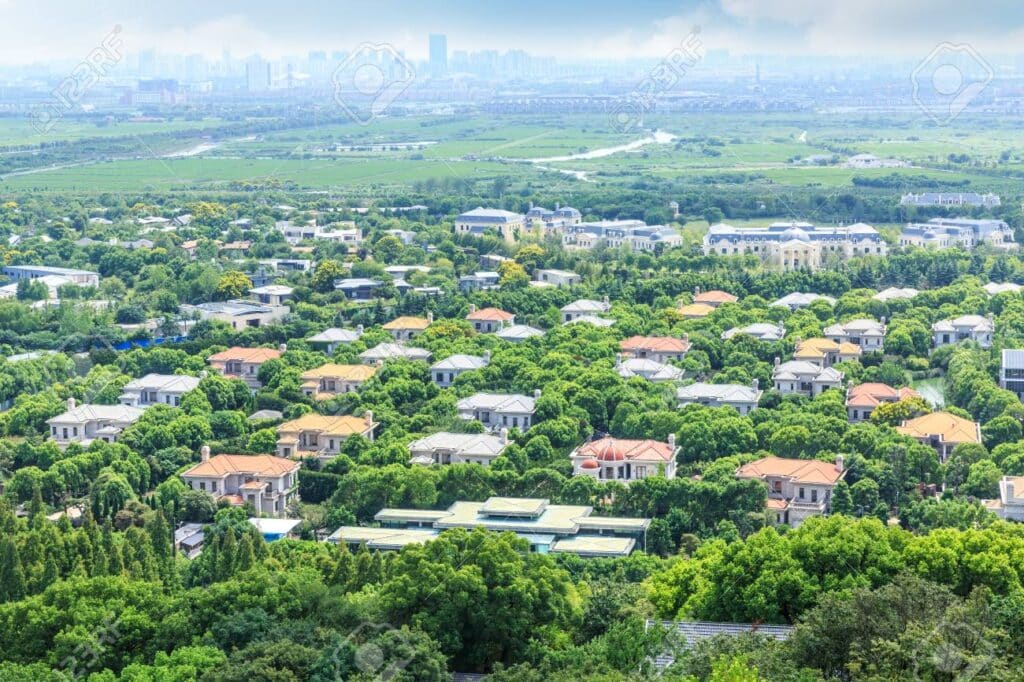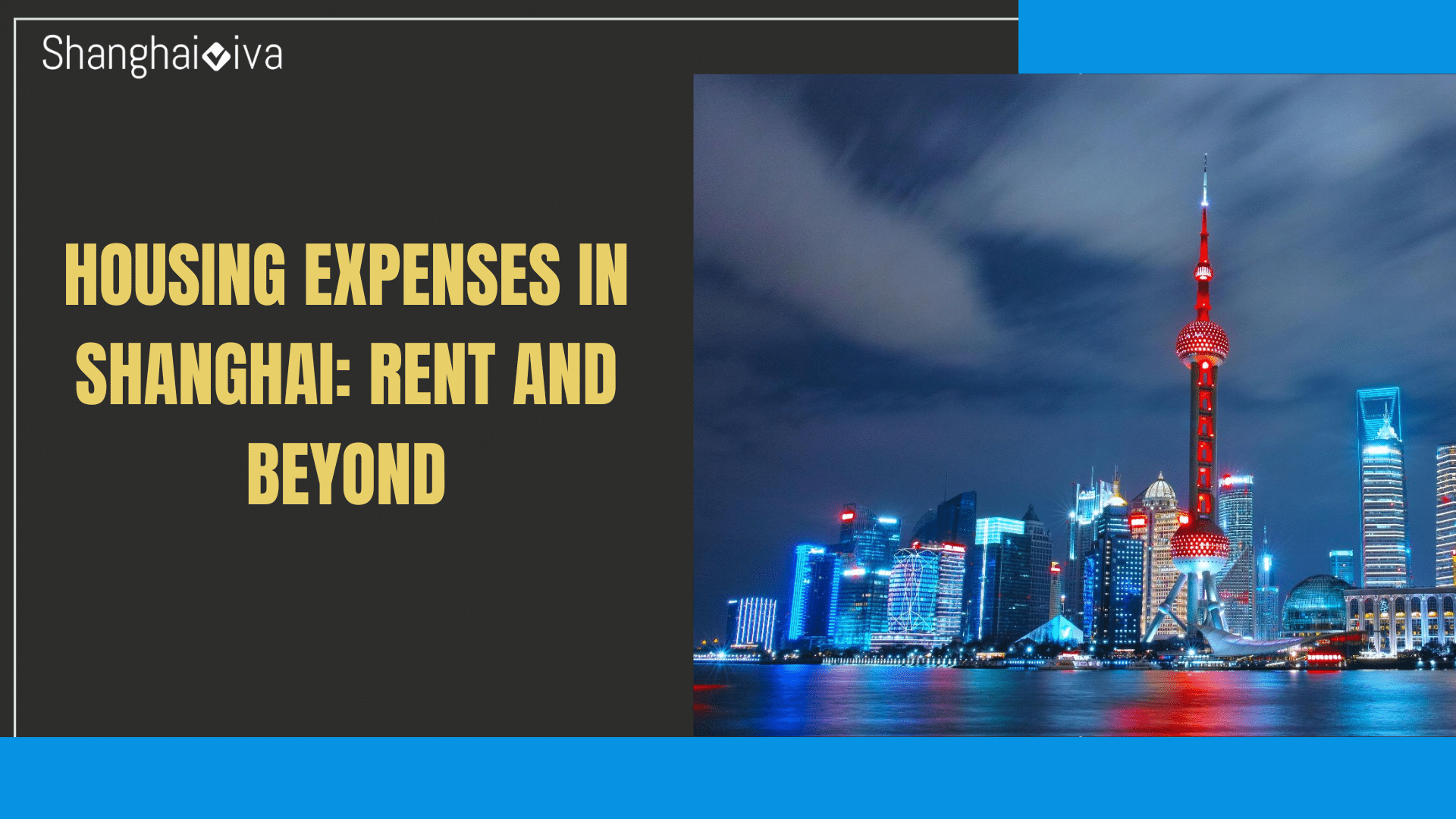Shanghai, a vibrant metropolis teeming with life and opportunity, is a city that attracts millions of individuals seeking their fortune and fulfilling their dreams. However, living in Shanghai, this bustling city comes at a price, especially when it comes to housing expenses. While the allure of Shanghai’s dynamic culture and career opportunities is undeniable, navigating the city’s housing market can feel daunting, particularly for newcomers. This article will delve into the intricacies of housing expenses in Shanghai, guiding you through the complexities of rent, essential costs beyond rent, and strategies for finding affordable housing options.

Rent in Shanghai: A Breakdown of Costs
The cost of renting in Shanghai is influenced by numerous factors, including location, property size, amenities, and market demand. Understanding these factors is crucial to budgeting effectively and making informed decisions about where to live.
Average Rent Prices
The average rent prices in Shanghai vary widely depending on the chosen neighborhood. In central districts like Huangpu, Xuhui, and Jing’an, where luxury apartments and high-end retail dominate, expect to pay significantly more than in suburban areas. As a general guideline, monthly rents for a one-bedroom apartment can range from:
- Central Districts: 5,000 to 15,000 RMB (around $700 to $2,100 USD)
- Suburban Districts: 2,000 to 5,000 RMB (around $280 to $700 USD)
These figures represent a broad overview, and actual rent prices can fluctuate depending on the specific property and your desired living standards.
Factors Influencing Rent

Several factors contribute to the overall rent price in Shanghai:
- Location: The closer you are to the city center, the higher the rent. Popular expat hubs like the French Concession, Jing’an, and Pudong tend to command premium prices.
- Property Size and Type: Larger apartments, luxurious finishes, and modern amenities naturally contribute to higher rent.
- Amenities: Amenities like swimming pools, gyms, and on-site parking can significantly increase the rent.
- Market Demand: Areas with high demand, such as those near universities or popular tourist attractions, tend to have higher rent prices.
- Seasonality: Rent prices may fluctuate slightly during peak seasons, such as the summer months when more people are looking to move.
Understanding these factors allows you to refine your search and find a suitable rental within your budget.
Negotiating Rent
In Shanghai’s competitive rental market, negotiating rent can be challenging, but not impossible. Here are some tips to help you secure a more favorable lease agreement:

- Research Market Rates: Before engaging in negotiations, thoroughly research average rent prices for similar properties in the area to know your bargaining range.
- Highlight Your Strengths: Showcase your financial stability and responsible tenancy history to impress the landlord.
- Be Prepared to Walk Away: If the landlord is unwilling to negotiate a fair price, don’t be afraid to walk away and explore other options.
- Long-Term Lease: Negotiating a longer lease term can sometimes lead to lower monthly rent.
- Consider Off-Peak Seasons: Negotiating during off-peak seasons (typically winter) may offer better opportunities for lower rent.
Remember, being polite and respectful while expressing your needs can help you achieve a mutually agreeable outcome.
Rental Deposit and Fees
In addition to monthly rent, be prepared for additional costs associated with renting in Shanghai:
- Security Deposit: Typically one to three months’ rent, the security deposit is held by the landlord and refunded at the end of the lease upon satisfactory condition of the apartment.
- Agency Fees: If you engage a real estate agency to help you find a rental, expect to pay an agency fee, usually one month’s rent.
- Utility Deposits: Many landlords require a deposit for utilities like electricity, water, and gas, which is refunded at the end of the lease after deducting any usage fees.
These costs should be factored into your overall housing budget.
Beyond Rent: Essential Housing Expenses
While rent is the most significant housing expense, other essential costs add up over time.
Utilities
- Electricity: Electricity bills in Shanghai are generally reasonable, especially if you use energy-efficient appliances.
- Water: Water usage is relatively inexpensive in Shanghai, with most apartments using metered billing systems.
- Gas: Gas usage for cooking and heating is also metered and charged based on consumption.
- Internet and Cable TV: High-speed internet and cable TV services are readily available in Shanghai, with prices varying depending on the provider and service plan.
Utilities typically amount to a few hundred RMB per month, but depending on your usage and lifestyle, these costs can fluctuate.
Property Management Fees
Many apartment buildings in Shanghai have property management companies responsible for maintaining common areas, providing security, and managing utilities. This service typically incurs a monthly fee, ranging from a few hundred to a thousand RMB, depending on the building’s size and location.
Home Insurance
While not mandatory, purchasing home insurance can provide peace of mind and protect you from unforeseen circumstances, such as theft, fire, or natural disasters. Insurance premiums vary depending on the coverage level and the value of your belongings.
Maintenance and Repairs
Even with regular maintenance, minor repairs and maintenance needs can arise. Landlords are generally responsible for major repairs, while tenants are often responsible for minor repairs, such as replacing light bulbs or fixing leaky faucets.
Furnishing and Decor
Furnishing and decorating your apartment can be an additional expense, especially if you are moving to Shanghai without furniture. You can opt for purchasing furniture from local stores, renting furniture from specialized services, or utilizing secondhand furniture options.
Finding Affordable Housing in Shanghai
Finding affordable housing in Shanghai requires a strategic approach and a willingness to explore different options.
Suburb Options

Moving to a suburban district can significantly reduce your housing costs. While you may have to travel further to reach the city center, suburbs like Minhang, Songjiang, and Baoshan offer more affordable rental options with a quieter and less bustling lifestyle.
Shared Housing
Sharing an apartment with roommates can dramatically cut down on your housing costs. Numerous platforms and websites dedicated to finding roommates exist, providing a convenient way to connect with potential flatmates.
Negotiating with Landlords
Negotiating rent, as mentioned earlier, is crucial to finding affordable housing. By being prepared, respectful, and persistent, you can secure a favorable lease agreement that fits your budget.
Government Subsidies
The Shanghai government offers rental subsidies to certain eligible individuals and families, such as low-income residents and those with disabilities. Contacting the local housing authority for information on eligibility criteria and application procedures is recommended.
Conclusion
Navigating the Shanghai housing market can be challenging, but with careful planning and research, finding affordable and comfortable accommodation is achievable. By understanding the factors influencing rent, exploring different options, and effectively negotiating with landlords, you can secure a place to call home in this dynamic city. Remember to factor in all essential housing expenses beyond rent and to explore available government subsidies to maximize your affordability. With a strategic approach, you can successfully find your perfect home in Shanghai while remaining within your budget.

